The housing authority says it has identified roughly 61,500 households with rent debt that may qualify for the new relief funds, who will be able to apply by filling out a consent form in NYCHA’s Self-Service Portal.
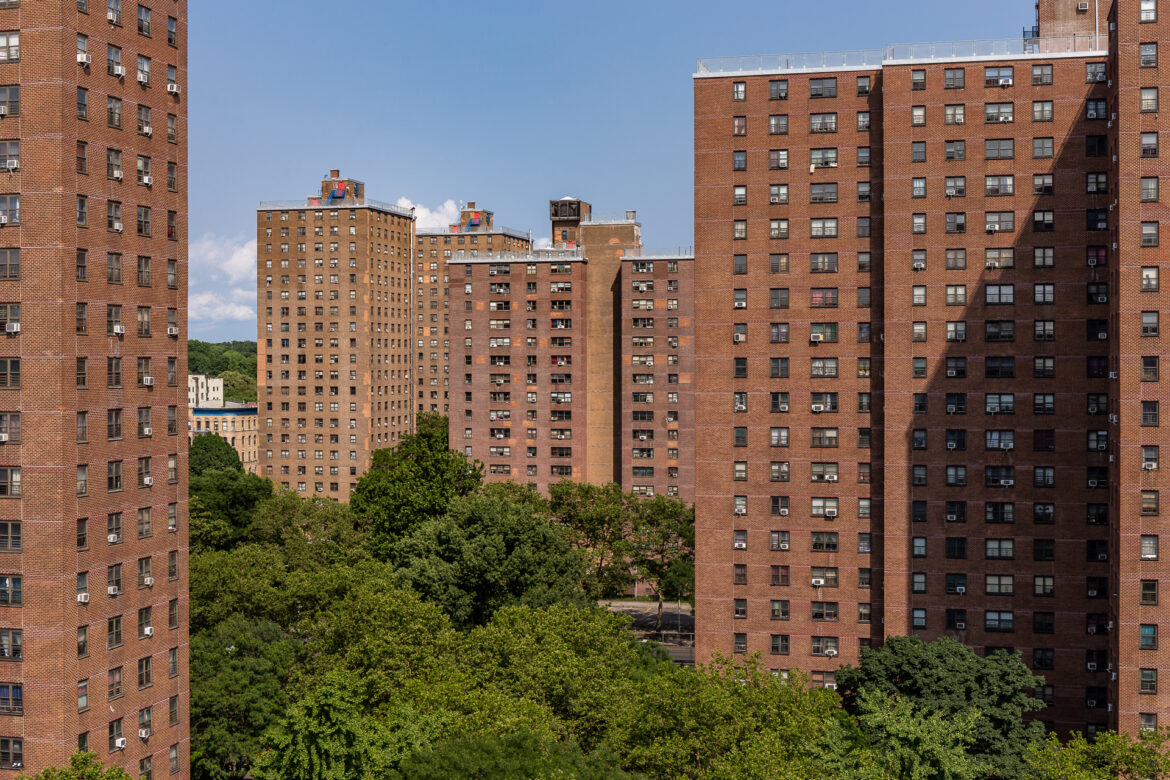
Adi Talwar
NYCHA’s Claremont Village in the Bronx.Lea la versión en español aquí.
NYCHA will distribute up to $185 million to help select public housing households pay owed rent, thanks to an infusion of funds from the state and federal government—an effort to help eradicate the hundreds of millions of dollars in rent arrears amassed since the start of the COVID-19 pandemic.
The housing authority says it has identified roughly 61,500 households with rent debt that may qualify for the new relief funds, based on eligibility criteria that includes earning less than or equal to 50 percent of the Area Median Income (equivalent to $77,650 a year for a family of four).
Outreach has already begun to notify these households via mailings, door-knocking, robocalls, text messages, and emails, NYCHA said. They will then have to apply by filling out a consent form in NYCHA’s Self-Service Portal, which will allow the housing authority to seek payment on their behalf. Tenants will only see an option to fill out the form in their online accounts—via a box labeled “Apply for Rental Arrears Assistance”—if they’ve been deemed eligible by NYCHA.
“This opportunity will help many households lift a burden off their backs and get their lives back to a sense of normalcy,” Daniel Barber, a resident of NYCHA’s Jackson Houses who chairs the Citywide Council of Presidents, said in a statement Thursday.
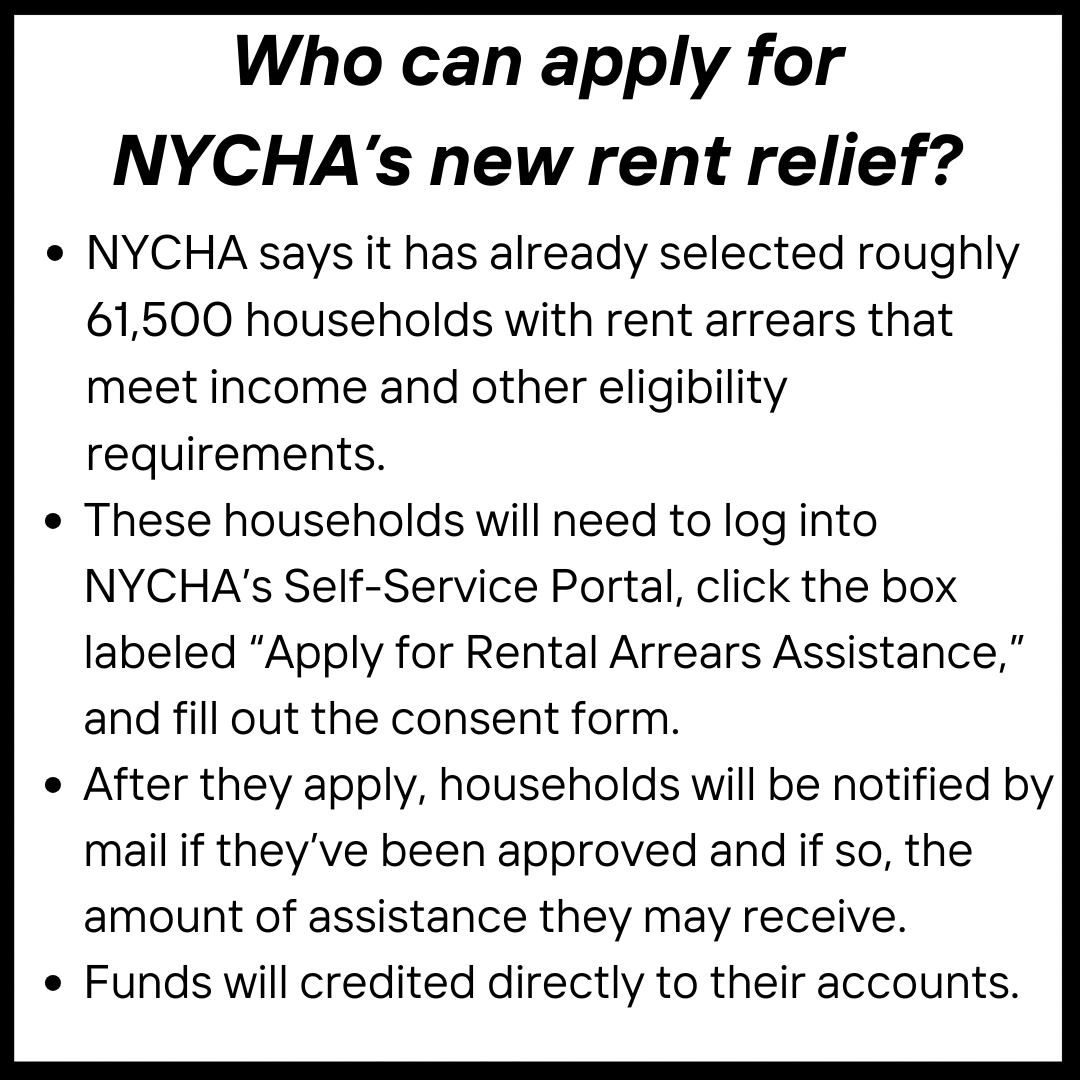
The $185 million comes from two separate initiatives: $35 million allocated by New York State through its COVID-19 Rental Assistance (CRA) program, and up to $150 million awarded by the U.S. Department of Housing & Urban Development (HUD) through the federal HOME American Rescue Plan Program, or HOME-ARP.
Households selected for state CRA aid can receive funds to cover up to 12 months of unpaid rent accumulated between March 2020 and May 2023, according to Gov. Kathy Hochul’s office. The HOME-ARP assistance, by contrast, will cover up to six months of rent debt owed since March 2020, a NYCHA spokesperson said.
Not every eligible household that applies will ultimately receive the aid, due to limited funds. Households found eligible for both programs could potentially receive funding from both, though will not be assisted twice for the same month, according to an FAQ on NYCHA’s website.
The new pools of money come on top of $159 million in past rent relief earmarked for NYCHA under the state’s pandemic-era Emergency Rental Assistance Program, or ERAP. Households that previously received ERAP aid may still be eligible for CRA and HOME-ARP funds, though CRA will prioritize households that haven’t if they apply within the first 30 days.
Public housing tenants were initially put at the back of the line for ERAP, despite being hard hit by COVID-19: in an August 2020 survey of NYCHA tenants, conducted by the Community Service Society (a City Limits funder), more than a fifth of respondents reported having a household member who’d been sick, while nearly half said they’d lost work or income.
The number of NYCHA households that owe rent has ballooned over the last four years, with more than 70,000 in debt as of September totaling $487 million, up from $125 million in 2019.
At a City Council hearing last month, NYCHA’s Chief Operating Officer Eva Trimble said they only pursue evictions “as a measure of last resort,” and that the majority of evictions for nonpayment have involved “extremely high arrears.” Since the pandemic moratorium was lifted in 2022, the housing authority has evicted 234 tenants, she said.
Rent debt has other ramifications: rental payments fund a third of NYCHA's operating budget, and losses impact its ability to maintain properties and make repairs, officials say.
“We have fought tirelessly for our NYCHA residents to get their fair share of rental assistance following the COVID-19 pandemic, and I am delighted that these two new programs will supplement the aid that came through ERAP,” NYCHA Chief Executive Officer Lisa Bova-Hiatt said in a statement Thursday.
For more information on CRA and HOME-ARP, visit NYCHA's website here.
To reach the reporter behind this story, contact Jeanmarie@citylimits.org
Want to republish this story? Find City Limits’ reprint policy here.


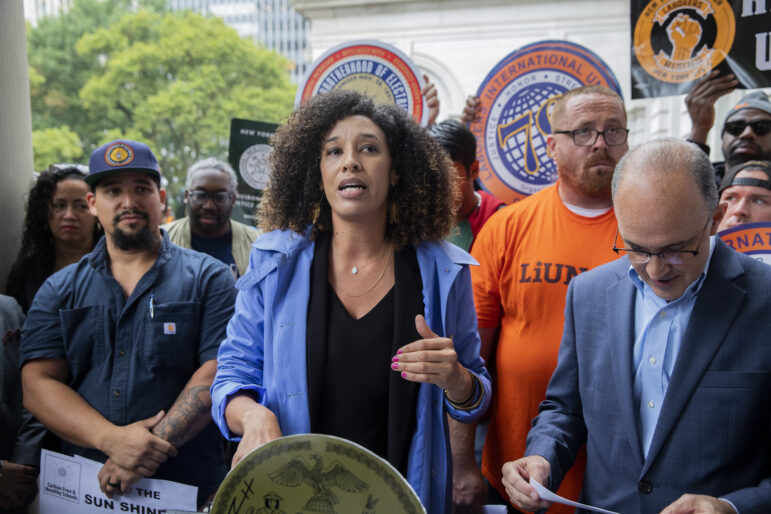

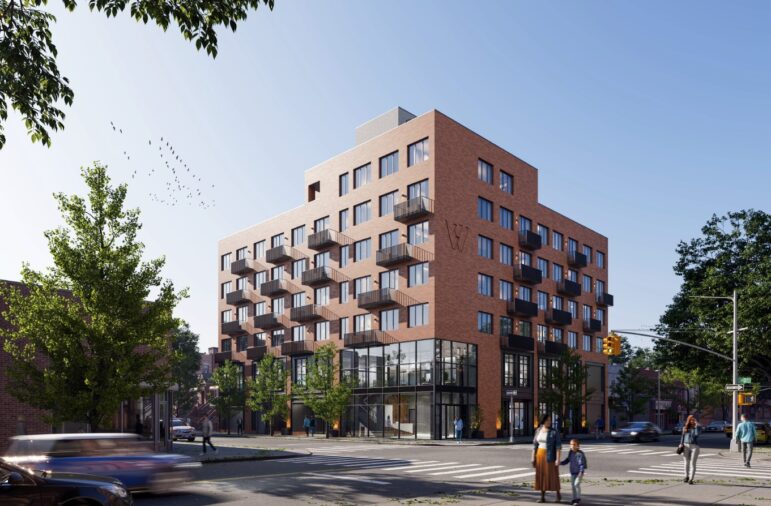
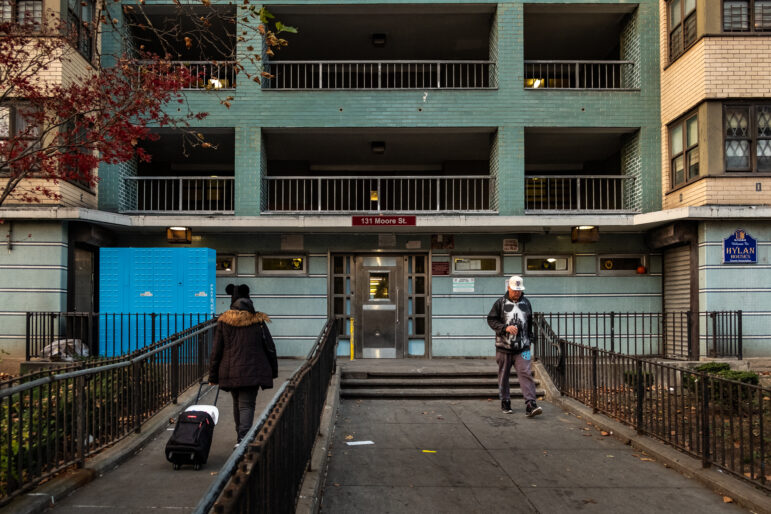
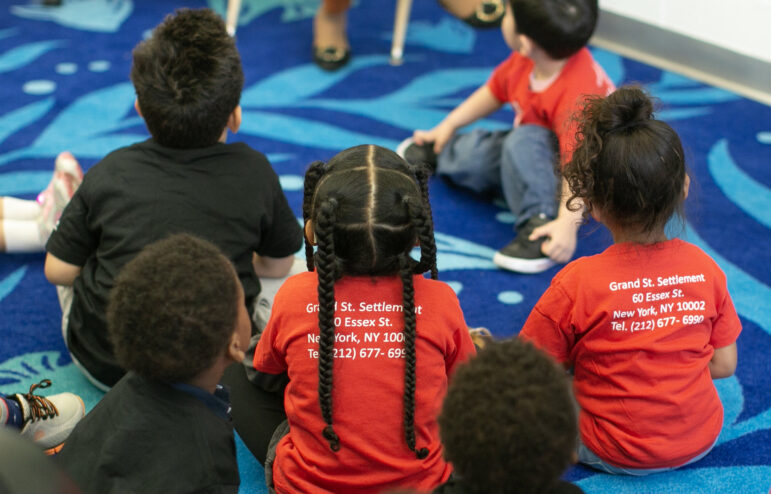


One thought on “NYCHA to Distribute $185M to Aid Households That Owe Rent. Here’s What to Know”
What about the people that are losing their houses to the property taxes?
Houses are paid for but o back taxes.So then the auction off for say $50000.When you owe ten thousand dollars in taxes they keep it all they don’t give you the change so they’re making forty thousand dollars and then leaving homeless people. How is that right in any way??? They don’t give you the change. I’m one of them.I’m a disabled person in my house for 22 years. Its paid off .And I’ll be homeless. I’m on social security disability I’ve been looking for help . Since covid started i lost my boyfriend and im not surviving .